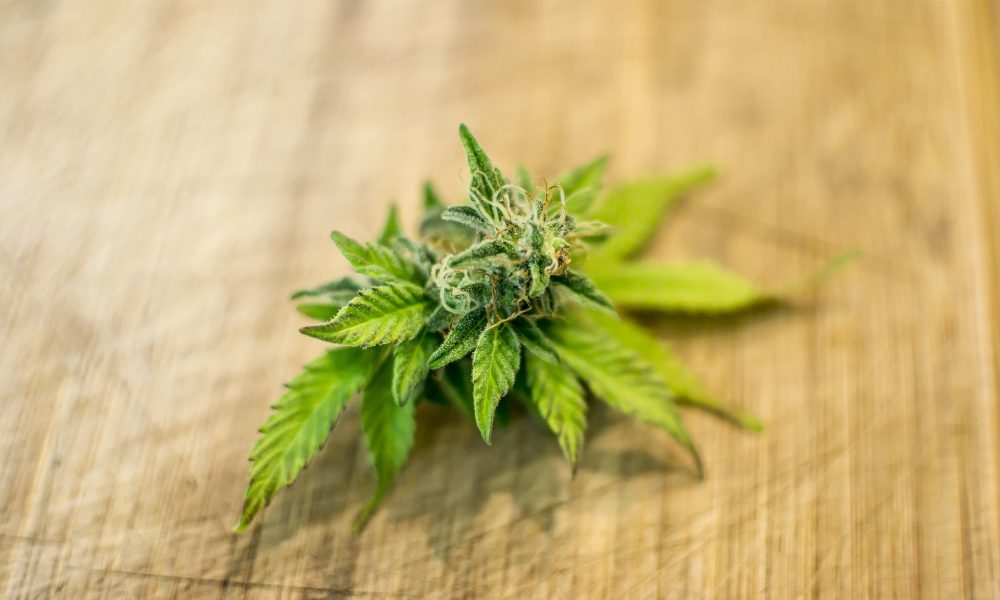New Jersey’s governor and attorney general have announced the recipients of a violence-intervention grant program funded in part with revenue from state-legal marijuana.
Gov. Phil Murphy (D) and Attorney General Matthew J. Platkin (D) said last week that $15 million—of which $5 million state’s Cannabis Regulatory, Enforcement Assistance, and Marketplace Modernization Fund—will be distributed to 29 organizations to support and expand New Jersey’s Community-Based Violence Intervention (CBVI) program.
The fund, which was established through the state’s marijuana legalization law, consists of monies from taxes on legal sales, industry fees and civil penalties.
In NJ, we know that communities grow stronger when the solutions to violence are community-led. Thanks to @GovMurphy, we’re awarding another $15M to 29 organizations providing services through community-based violence intervention programs. https://t.co/qrY7lwql2Y pic.twitter.com/C4sFzIttlY
— Attorney General Matt Platkin (@NewJerseyOAG) December 6, 2023
With the new $15 million injection, the state’s support for CBVI program now totals $40 million since 2021.
Examples of organizations being supported in the most recent round of awards include Alcove Center for Grieving Children and Families, Newark Community Street Team, Anti-Violence Coalition of Hudson County, Urban Care Foundation, Covenant House New Jersey and Elizabeth Youth Theatre Ensemble.
The program “has proven to be successful in its mission to disrupt the cycles of violence and support vulnerable survivors of this epidemic in communities across our state,” Murphy said in the announcement.
State guidelines around CBVI say a minimum of $5 million from the state cannabis fund must support the program. Some of that money is from the state’s Cannabis Impact Zone Funds, which focus on addressing the disproportionate impacts of the drug war.
Eligibility for those funds is contingent on applicants operating in so-called impact zones, defined by measures such as high rates of criminal convictions for marijuana activity, disproportionate law enforcement activity and high rates of unemployment.
“The $15 million in grant awards we are announcing today deepen our support for community-led solutions to reduce violence as part of our extensive public safety strategy alongside traditional law enforcement services,” Platkin said a press release from his office.
According to the release, the program’s 2024 funding round “emphasizes and prioritizes certain violence prevention strategies—sometimes called violence intervention or ‘tertiary’ services—that respond to violence by working with individuals who are at a high risk of violence or victimization, typically through street outreach.”
The approach “differs from other prevention strategies like primary and secondary services, which are less focused on those who are highest risk. Through methods like street outreach, violence interventionists and outreach workers respond to situations in real-time, including in hospitals outside schools, in parks, on the streets, and at neighborhood functions.”
“This year’s grant program increased the total award ceiling for tertiary service providers to $750,000—an increase that, among other things, allows them to expand their capacity,” Platkin’s office said.
The year’s funding cycle will support 29 programs in 11 counties, the AG’s office said, “which include services to 14 of the 15 communities that have been most impacted by shooting incidents.”
There were two categories for grant applications due in September: one capped at $750,000 for organizations serving “those already engaged in violent behavior or at high risk of violence due to past victimization or as a result of retaliation” and another capped at $500,000 for groups serving “individuals who are at risk due to living in high rates of community violence, or due to a risk factor like involvement in the juvenile justice system or having a family member who is gang-involved.”
New Jersey is among a majority of states with legal cannabis that route at least some portion of revenue toward community reinvestment.
Missouri recently announced nearly $17 million in marijuana-related revenue would be spent on veterans health, drug treatment and legal aid.
In August, California announced it was opening applications for $48 million in marijuana tax-funded community reinvestment grants, which support job placement, legal assistance, treatment of mental health and substance use disorders, referrals to medical care and other services for communities that have been disproportionately affected by the drug war. That program, which awards grants of up to $3 million, is funded exclusively through state cannabis revenue.
Months earlier, California regulators at the Department of Cannabis Control (DCC) announced the award of $4.1 million to 18 local governments through a first-of-its-kind program to support cannabis business licensing programs and curb the illicit market.
DCC also recently awarded nearly $20 million in research grants, funded by marijuana tax revenue, to 16 academic institutions to carry out studies into cannabis—including novel cannabinoids like delta-8 THC and the genetics of the state’s numerous “legacy” strains. And in February, California officials announced the award of $15 million in grants to support local efforts to promote equity in the marijuana industry.
Meanwhile, Illinois paid out $45 million in grants last year under its Restore, Reinvest, and Renew (R3) program, which was established under the state’s adult-use cannabis legalization law. Funds went to 148 programs run by organizations operating on relatively small budgets in communities designated as socioeconomically disadvantaged.
Arizona sets aside 10 percent of marijuana tax revenue for a justice redevelopment fund, which funds public health services, counseling, job training and other social services for communities that have been adversely affected by marijuana arrests and criminalization. Applications for the state’s first round of grants under that program became available in March.
New Interactive Federal Map Shows How States Rely On Marijuana Tax Revenue To Fund Public Services
Read the full article here

